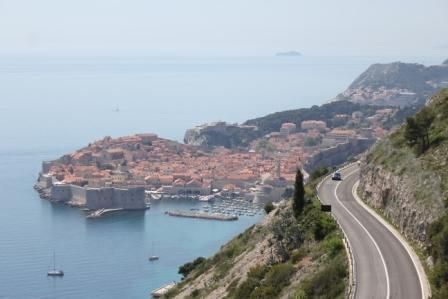The Berlin Process and the European Integration of the Western Balkans

Objectives of the Berlin Process
The Berlin Process is an expanding coalition of 10 EU countries cooperating with the Western Balkan states, aimed at furthering the development of the latter. This format was inaugurated by Austria, Croatia, Germany and Slovenia, and later joined by France, Italy, the United Kingdom, Poland, Greece and Bulgaria. After the first summit in Berlin in 2014, successive annual meetings of these countries’ leaders took place in Vienna, Paris, Trieste and London. Poland is the host of the summit in Poznań in July 2019.
The Berlin Process aims to support European integration, but not to replace it. Therefore, the final declaration of the summit of August 2014 omitted the central element of integration, i.e. improvement of the rule of law in the Western Balkan states. Instead, it obliged them to accelerate general reforms, resolve bilateral disputes, achieve progress in reconciliation, and deepen regional cooperation, including on the economic level. Thus, the Berlin Process contains other essential points in bringing the countries of the region closer to the EU, and therefore maintains a close relationship with the European integration process.
Achievements
The most important achievement of the Berlin Process has been to maintain EU Member States’ interest in the European integration of the Western Balkans. It gained special significance after Jean-Claude Juncker’s July 2014 declaration that there was no possibility of further EU enlargement during his five-year term as president of the European Commission (EC). Strengthening relations between the EU and the Balkans other than through membership is essential in the context of the EC's strategy from 2018. It assumes that the countries that are most advanced in negotiations will have an option to join the EU in 2025, should they meet the membership criteria.
The Berlin Process formula is open also in terms of areas of cooperation. Initially, it was to cover the economic and social sectors as well as bilateral disputes. With time, the Connectivity Agenda became the main economic point of the Process, including road, rail, energy and digital infrastructure. Intensified cooperation in this area has mobilised, among other things, the introduction of simplifications in telecommunications. It resulted in the April 2019 declaration on a significant reduction in the cost of telephone connections between the countries of the region, and the abolition of roaming charges from 2021. The Berlin Process strengthened joint activities on the societal level through the Regional Youth Cooperation Organisation (RYCO). During the London summit, cooperation was broadened by the inclusion of security. The programme of the Poznań summit (3–5 July 2019) assumed the continuation of the existing themes of economy, connectivity, civil society and security. The open formula allowed Poland to offer to organise the Forum of Cities and Regions in Rzeszów in June, and the Think-Tank Forum—for the first time within the Berlin Process summit in Poznań.
Limitations
Although the Berlin Process does not focus on issues such as the rule of law, adoption of the acquis communautaire or building a market economy, it aims to bring the prospects of Balkan integration with the EU closer. This goal has not been achieved, mainly due to the slow process of reforms in the region and the reluctance of some EU Member States to continue the enlargement process. Montenegro, after seven years of accession talks, has opened 32 out of 35 negotiation chapters, of which only three have been closed. Serbia, after five-and-a-half years of negotiations, has opened 17 out of 35 chapters, of which two are now closed (in comparison, Croatia completed its talks in less than six years). Albania has been an official candidate for membership since June 2014, but even though the Berlin Process started right after, the negotiations have not yet been opened, despite the favourable opinion of the EC. Neither has North Macedonia opened its accession talks, despite changing its name at the beginning of 2019 as a result of demands by Greece. Improving neighbourly relations is a priority of the Berlin Process, and the new government in Skopje has achieved this goal (including by signing a Treaty on friendship, good neighbourliness and cooperation with Bulgaria in 2017). Yet, the start of talks on North Macedonia’s EU membership—recommended by the EC—was blocked in June 2019 by France. Bosnia and Herzegovina and Kosovo have not even received the status of official candidates for membership.
There is a lack of political will in some Balkan states to deal with problems which, if resolved, could intensify regional cooperation. Before the London summit, it was announced that civil society organisations in the Western Balkans intended to set up a Regional Commission (RECOM) to establish facts about all victims of war crimes and other serious human rights violations committed on the territory of the former Yugoslavia. Despite the collection of over half a million signatures for the establishment of RECOM in a region with around 18 million inhabitants, not all Balkan governments (primarily Serbia) were willing to support this initiative, which was not implemented.
The motivation for more in-depth involvement of the governments in the region in activities within the Berlin Process is limited. Accession to the EU remains the foreign policy priority of every Western Balkan state. However, the lack of clear membership prospects for most countries in the region makes it difficult to implement the provisions of previous summits. Inclusivity also contributes to this, and incorporation of new topics makes it difficult to evaluate the achievements of the Berlin Process.
Limitations of the Berlin Process may also result from the political situation in the country hosting the summit. In London, the paradox was that a country preparing to leave the EU was asked to encourage Balkan countries to join it. To complicate matters further, the British foreign minister Boris Johnson resigned on the day of the summit, in protest against the prime minister Theresa May’s European policy. This weakened the overall positive message about EU enlargement.
Conclusions and Recommendations
Given the lack of prospects for rapid EU enlargement, which was confirmed by the EC, the Berlin Process allowed for the strengthening of the EU's relations with the Western Balkans and cooperation between the countries of the region. The Berlin Process succeeded in some areas of regional cooperation (such as RYCO) but fell short of achieving some ambitions (RECOM). An indirect goal—the acceleration of European integration—has not been achieved.
To strengthen the prospect of the EU accession of the Western Balkan states, Poland may consider using the Poznań summit to promote a more decisive approach to enlargement policy among the Member States in the new term of the EU institutions. The recent resolution of the dispute, in which Greece prevented North Macedonia’s European integration, should serve as an incentive to call on EU partners to reject the use of blocking enlargement by individual Member States. This should apply primarily to the countries involved in the Berlin Process, hence also to France, which, contrary to the assumptions of the Process, has acted to delay the European integration of the region.
The credibility of Poland in activities promoting the efficient integration of the Balkans with the EU remains strong because Warsaw has never attempted to weaken the EU's enlargement policy. Such support can also be perceived as more unbiased when compared to other participants of the Berlin Process, who have extensive economic contacts in the region. What is more, Poland's recent activities in the Balkans have focused on supporting the region's aspirations for membership, including through bilateral instruments such as the Skopje Conference, the Belgrade Conference, the Tirana Conference and the Academy of Enlargement. In turn, the Think-Tank Forum, inaugurated by Poland, could be established as a permanent element of the Berlin Process and involve these organisations in a comprehensive evaluation of the Process’ findings so far. It could also contribute to the establishment of institutionalised think-tank cooperation on the regional level.


